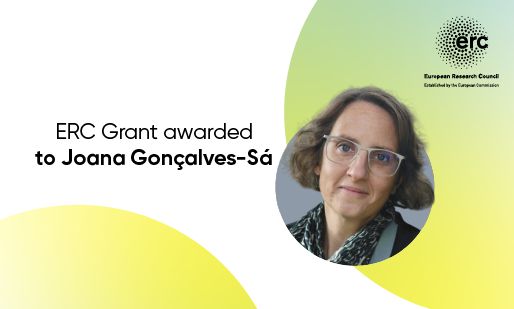The European Research Council (ERC) has awarded a prestigious Proof of Concept (PoC) grant to Joana Gonçalves-Sá, a researcher at NOVA LINCS, the research centre of NOVA School of Science and Technology, NOVA University Lisbon, and at LIP (Laboratory for Instrumentation and Experimental Particle Physics), to lead the FARE_DSA project – A Framework for Auditing Recommendation Engines under the DSA.
FARE_DSA will develop and test an innovative methodology for auditing algorithmic platforms that play a growing role in how citizens access information online – in particular, search engines and large language models (LLMs). This will be the first project to offer a concrete and policy-aligned tool for implementing Article 40 of the European Union’s Digital Services Act, which grants accredited researchers access to non-public platform data in order to assess systemic risks to the EU, such as electoral interference or political manipulation.
“Platforms like Google or ChatGPT have become key gateways to information,” says Joana Gonçalves-Sá. “But we are far from understanding how their algorithms influence public opinion. During the 2024 European Parliament elections, we observed that both search engines and LLMs systematically displayed content biased towards one side of the political spectrum. With this project, we aim to test whether such bias is widespread and, if so, why. This can only be done in collaboration with both regulators and platforms themselves, to identify causes and examine implications.”
Research into algorithmic transfer
The project builds on previous ERC-funded research, notably the ERC Starting Grant project FARE – Fake News and Real People (launched in 2020 with €1.5 million), and the PoC grant FARE_Audit, which enabled the development of customisable “online robots” (or webcrawlers) capable of mimicking human behaviour and simulating different characteristics (e.g. country, age, gender). These bots interact with search engines and LLMs to gather data on how platforms respond to user queries. Analyses from this approach show that minor variations in browsing history or user profile can lead to significantly different – and sometimes biased – results. FARE_DSA will deepen this methodology with access to real platform data under the DSA, offering new insights into how personalisation and monetisation may distort access to information, particularly during critical periods such as elections.
“Our team has spent years developing ethical, privacy-preserving tools to audit algorithmic systems without collecting personal data,” adds Joana Gonçalves-Sá. “But to truly understand what happens behind the scenes – for example, how online search results are ranked, or why certain links appear first – we need access to non-public data. Article 40 enables just that. It’s a unique moment for research into algorithmic transparency. This funding will help us open that door – and, we hope, help others follow through.”
The project will also clarify what data is available, in what formats, and under what conditions it can be accessed via Article 40 – aiming to end a longstanding deadlock between algorithmic transparency researchers and online platforms. FARE_DSA will also generate public policy recommendations, organise training for academics and NGOs, and contribute to broader audits of Very Large Online Platforms and Search Engines (VLOPs and VLOSEs).
Although ERC Proof of Concept grants are often associated with commercial innovation, FARE_DSA demonstrates their potential as high-impact social innovation tools, bridging world-class science, digital transparency, and public policy implementation.
FARE_DSA has received €150,000 in funding and will be implemented over one year.
Biographical Note
Joana Gonçalves-Sá is a researcher at NOVA LINCS – NOVA School of Science and Technology, NOVA University Lisbon – and at LIP (Laboratory for Instrumentation and Experimental Particle Physics), where she leads the Social Physics and Complexity (SPAC) research group. Since 2025, she has also been External Faculty at the Complexity Science Hub in Vienna. She holds a degree in Engineering Physics from Instituto Superior Técnico – University of Lisbon, and a PhD in Systems Biology from NOVA ITQB, having completed her thesis at Harvard University (USA).
Between 2018 and 2020, she was Associate Professor at Nova School of Business and Economics and previously Principal Investigator at the Gulbenkian Institute of Science, where she led the Science for Society initiative and founded and directed the PhD programme PGCD – Science for Development, aimed at promoting scientific research in Africa.
She has received two ERC grants (StG_2019 and PoC_2022) to study human and algorithmic biases, using misinformation as a model system.

